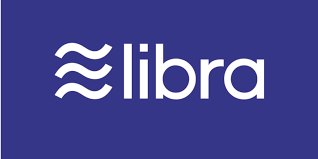Facebook officially introduced its cryptocurrency to the world this week. Called Libra, it will function as a stablecoin, allowing Facebook’s two billion users to make purchases across Facebook’s various platforms by 2020.
Stablecoins are cryptocurrencies designed to maintain a single market price. Differing from bitcoin, whose value is based on scarcity of available bitcoins, stablecoin value is tied to Fiat currencies or other assets such as commodities, other cryptocurrencies, or other crypto-collateralized or algorithm-backed non-collateralized assets. Because of this anchor, stablecoin usage in commercial transactions has increased in recent years, as has holding stablecoins for treasury or investment purposes. Libra will be backed by a basket of fiat currencies that the Libra Association says will provide the cryptocurrency with “stability, low inflation, global acceptance and fungibility.”
The coin will be governed by the Libra Association, a consortium of companies including Visa, Mastercard, Uber, Spotify, Coinbase and PayPal among others backing the foundation and acting as nodes for the Libra blockchain.
NYU Professor and Economist Nouriel Rubini, when discussing Libra, observed “It has nothing to do with blockchain” due to the coin being “fully private, controlled, centralized, verified and authorized by a small number of permissioned nodes.” While a cryptocurrency hallmark is its underlying public and permissionless distributed ledger technology (most famously the Bitcoin blockchain), Libra is more a centralized or quasi-decentralized cryptocurrency (in contrast to other cryptos like Bitcoin, Ripple, Monero and Litecoin) much to the chagrin and skepticism of some in the crypto industry. However, Facebook’s blockchain technical lead, Ben Maurer, says node membership will further decentralize and eventually transition to Libra holders beyond the Association members.

The coin can be used across Facebook and Facebook-owned platforms like Whatsapp and Facebook Messenger. Users can transact with other users to make online purchases for digital and non-digital property. Possible benefits of Libra are increased efficiency and minimized transaction fees plus identity verification positives due to know-your-customer (KYC) characteristics increasingly enforced on fintech and crypto startups. Facebook promised to keep transaction data separate from Facebook user data.
Besides the Libra cryptocurrency, a second cryptoasset, called Libra Investment Tokens, will be available as a security token to investors who meet certain criteria. The token will function akin a stock, purchasable or distributable like a dividend to investors. The Facebook blockchain will be open-sourced under an Apache 2.0 license. Rather than go with a preexisting blockchain solution, Facebook developed its own and created a new programming language for the project.
The market potential is high, with Facebook’s users numbering in the billions and large swaths of the world’s population more likely to have a Facebook profile than a bank account. With as many as 50 billion devices connected to the Internet over the next 10 years, lawyers are rushing to understand the legal ramifications of technology’s rapidly expanding reach.
Legally, Libra’s release comes at a time when Facebook is in the crosshairs of antitrust, security and privacy questions, and in an inconsistent American legal and regulatory environment regarding cryptocurrencies. The Internal Revenue Service recognizes cryptos as property for tax purposes; the Commodity Futures Trading Commission (CFTC) most often treats cryptos as a commodity; the US Treasury Department’s Financial Crimes Enforcement Network (FinCEN) classifies cryptos as currency for the purposes of their regulatory structure and the Bank Secrecy Act; and the Securities and Exchange Commission (SEC) considers cryptos a security if the cryptocurrency meets the Howey test to determine whether or not it is a security.
Libra has potential for widespread cryptocurrency usage in ways that Bitcoin and its contemporaries have yet to see.
Notably, the SEC’s director of the Division of Corporation Finance has said neither Bitcoin nor Ethereum, the world’s leading coin and token (there is a difference), are securities. While the SEC’s Strategic Hub for Innovation and Financial Technology (FinHub) published a framework for analyzing whether a digital asset is a security, the United States lags behind other countries in having a clear legal and regulatory framework for cryptocurrencies.
A lack of centralized authority was inherent (and a point of pride) in the genesis of Bitcoin, but the Wyoming Blockchain Task Force’s Caitlin Long opined that Facebook’s Libra may be a catalyst to crystallize clearer regulation and expose outdated SEC rules as P2P transactions and investments become more common in today’s world of crowdfunding, technological automation and other changes impacting the legal and financial industries.
Facebook and Calibra — a separate spin-off of Facebook — are members of the Libra Association. This places Facebook closer to the capital markets space as the company looks to expand beyond its social network roots. According to Long, the foundation itself is expected to act like a central banking authority by “defin[ing] and manag[ing] the assets to ensure the peg (connecting Libra to fiat value) doesn’t break.” However, having Libra’s governance in the hands of a separate foundation does purport a layer of decentralization. Credit card companies, banks and other centralized points in the lifecycle of transactions have been suspected casualties of the disruptive possibilities of cryptocurrencies and blockchain. As a result, the involvement of credit card companies and that of Wall Street (which Facebook hopes to still involve) is not unexpected.
Looking ahead, Libra has potential for widespread cryptocurrency usage in ways that Bitcoin and its contemporaries have yet to see. Facebook provides a unique mainstream platform and there are undoubtedly positives that may come from transacting Libra.
However, the potential exists for claims pertaining to consumer fraud and investor protection, to increased tokenization of assets, to how to classify and regulate Libra (as well as Facebook and its role), to user privacy and surveillance concerns, and to the money-laundering concerns consistently present with cryptocurrencies.







